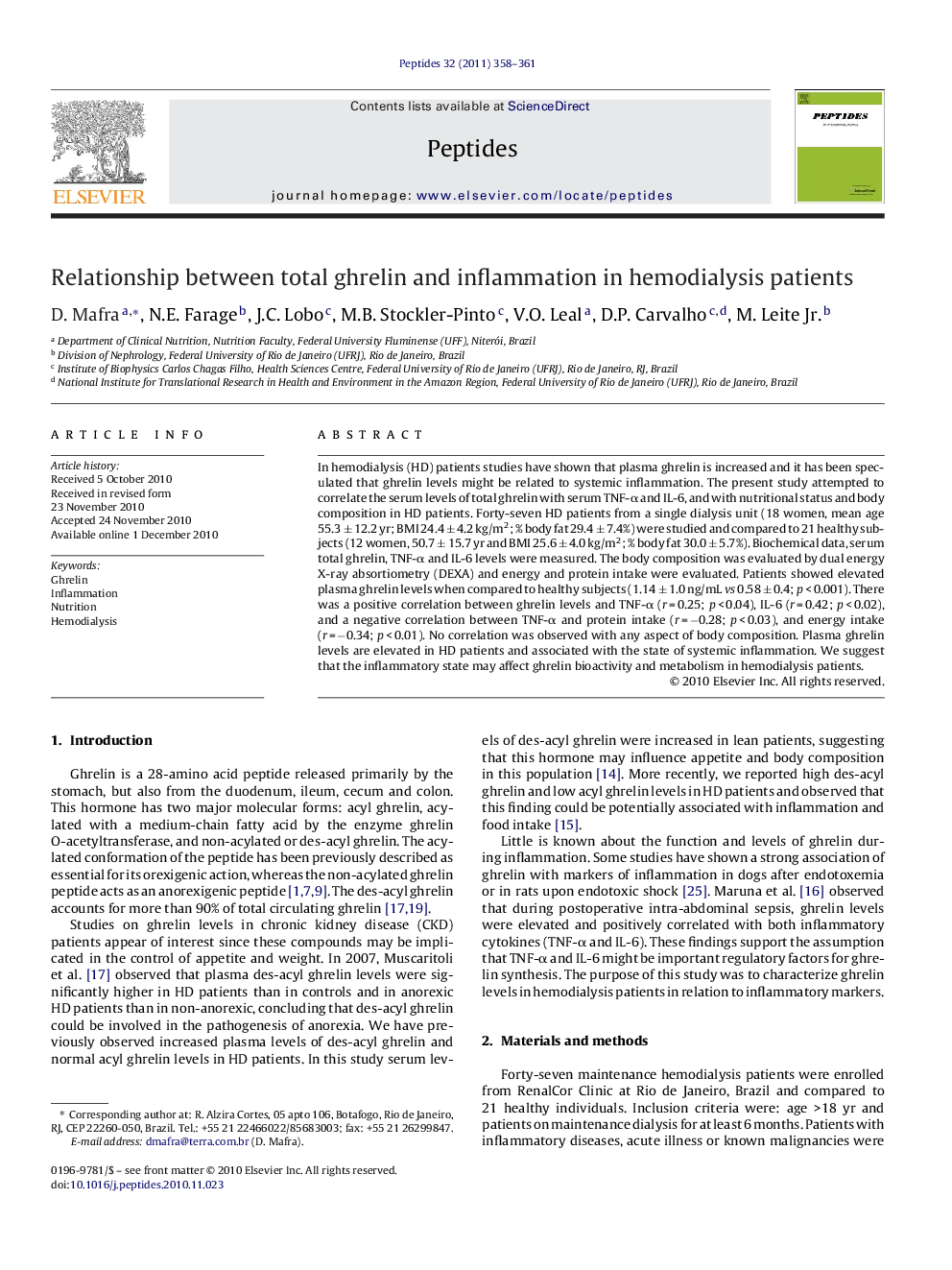| Article ID | Journal | Published Year | Pages | File Type |
|---|---|---|---|---|
| 2006596 | Peptides | 2011 | 4 Pages |
In hemodialysis (HD) patients studies have shown that plasma ghrelin is increased and it has been speculated that ghrelin levels might be related to systemic inflammation. The present study attempted to correlate the serum levels of total ghrelin with serum TNF-α and IL-6, and with nutritional status and body composition in HD patients. Forty-seven HD patients from a single dialysis unit (18 women, mean age 55.3 ± 12.2 yr; BMI 24.4 ± 4.2 kg/m2; % body fat 29.4 ± 7.4%) were studied and compared to 21 healthy subjects (12 women, 50.7 ± 15.7 yr and BMI 25.6 ± 4.0 kg/m2; % body fat 30.0 ± 5.7%). Biochemical data, serum total ghrelin, TNF-α and IL-6 levels were measured. The body composition was evaluated by dual energy X-ray absortiometry (DEXA) and energy and protein intake were evaluated. Patients showed elevated plasma ghrelin levels when compared to healthy subjects (1.14 ± 1.0 ng/mL vs 0.58 ± 0.4; p < 0.001). There was a positive correlation between ghrelin levels and TNF-α (r = 0.25; p < 0.04), IL-6 (r = 0.42; p < 0.02), and a negative correlation between TNF-α and protein intake (r = −0.28; p < 0.03), and energy intake (r = −0.34; p < 0.01). No correlation was observed with any aspect of body composition. Plasma ghrelin levels are elevated in HD patients and associated with the state of systemic inflammation. We suggest that the inflammatory state may affect ghrelin bioactivity and metabolism in hemodialysis patients.
Research highlights▶ This study correlates the levels of ghrelin with TNF-α, IL-6, nutritional status and body composition in HD patients. ▶ Patients showed elevated plasma ghrelin levels when compared to healthy subjects. ▶ There was a positive correlation between ghrelin levels and TNF-α, IL-6. ▶ Plasma ghrelin levels are associated with the state of systemic inflammation.
